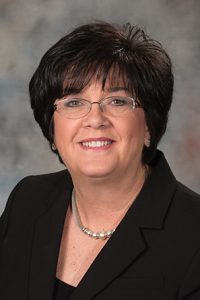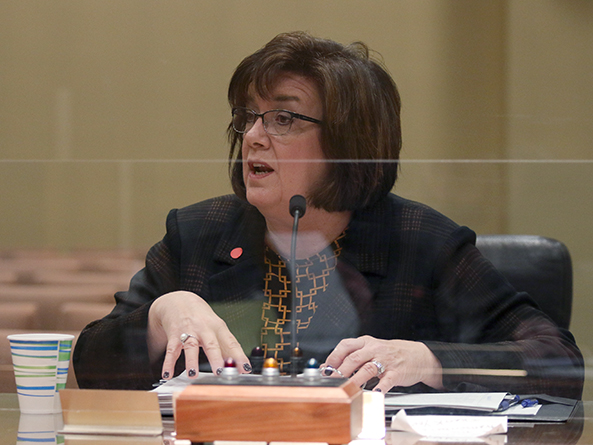Bill seeks to curb child sexual abuse
Nebraska schools would provide child sexual abuse prevention training to students, teachers and parents under a bill considered Feb. 23 by the Education Committee.
As introduced by Sen. Joni Albrecht of Thurston, LB281 would require each school district to adopt a child sexual abuse prevention instructional program for students in kindergarten through fifth grade for implementation beginning in school year 2022-23.
Programs would include at least four instructional sessions per school year using age-appropriate curriculum regarding body safety. The instruction would provide students with the knowledge and tools to communicate incidents of potential and actual sexual abuse.
Programs also would include a training component for teachers, administrators and other school staff and another for parents.
The bill would require the curriculum to be funded with money available under the federal Every Student Succeeds Act.
Albrecht brought an amendment to the hearing that she said would require the state Department of Education to provide a list of approved training materials to school districts. The amendment also would require districts to provide the training to students in kindergarten through twelfth grade, she said.
“Without educating children in school,” Albrecht said, “most will never get the message on how to speak up and tell someone that they’re being abused.”
Carrie Erks, a school social worker at Lincoln Public Schools, testified in support of LB281. She said her district started teaching preschoolers about body awareness and sexual abuse prevention nearly 20 years ago.
Erks said a well-chosen sexual abuse prevention program empowers parents to have body awareness conversations with their children often and early so that when a touching rule is broken, students are able to recognize, refuse and report the abuse before it can continue or escalate.
“Over the years, I have watched children who have received these lessons assertively define boundaries around their body and immediately and without hesitation report unwanted or unsafe touches,” she said. “But so many times I have hoped that this was available to all our community’s children.”
Cora Schrader provided written testimony in support of the bill on behalf of Children’s Hospital and Medical Center. She said appropriate, age-specific education on sexual abuse and how to disclose it can help children who have been abused come forward.
Teachers and other school personnel are the largest group of child sexual abuse reporters, Schrader said.
“However, it is not common for educators to have been taught how to respond to these disclosures and how to recognize indicators of abuse or neglect,” she said. “This training will provide educators with the tools necessary to recognize and respond appropriate[ly] to their students’ needs.”
Jason Hayes provided written testimony in support of the proposal on behalf of the Nebraska State Education Association. He said it is important that teachers, as mandatory reporters of child sexual abuse, receive the training necessary to identify signs of that abuse.
“In addition,” he said, “it is imperative that our students are given the information — and even the vocabulary — necessary to keep themselves safe and know who and how to reach out to if they are being abused.”
Colby Coash testified in opposition to the bill on behalf of the Nebraska Association of School Boards. He said it would circumvent the process by which the State Board of Education and state Department of Education set curriculum requirements for Nebraska schools.
Additionally, he said, the department has drafted new health education standards that include several of the elements proposed in LB281. If the bill passes, he said, school boards potentially would have to implement conflicting requirements.
Connie Duncan, a Lincoln Public Schools board member, also testified in opposition. She said LB281 would “steal” federal funding from existing programs and create additional requirements for schools without also increasing state funding.
The committee took no immediate action on the bill.


